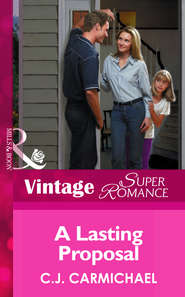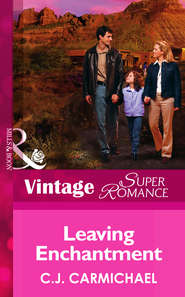По всем вопросам обращайтесь на: info@litportal.ru
(©) 2003-2024.
✖
Same Place, Same Time
Автор
Год написания книги
2018
Настройки чтения
Размер шрифта
Высота строк
Поля
“Well, I’ve got bad news for you, lady. You’re going to have to continue talking with me. Until I solve this case, or we both go crazy with the effort.”
CHAPTER FOUR
WEDNESDAY WAS Trista’s evening to volunteer at Suni Choopra’s campaign office. The small one-room headquarters was located just east of the Humber River, in Bloor West Village, amid the small delicatessens, cafés and boutiques that gave the area its charm. Trista rode the subway one stop beyond her own, to Runnymede, then ran up the concrete steps to the sidewalk. Flowers and tubs of fresh vegetables stood outside the small grocery shop beside the campaign office, and Trista stopped to pick up a potted mum for the front desk.
Campaign posters covered the glass front of Suni’s office. Her beautiful East Indian face, with its classical proportions and unusually pale complexion—inherited, along with her height, from her Nordic mother—was arresting in itself. Then you saw her record and you were really impressed. That was why Trista was here. Suni was going to change things, and Trista wanted to help.
When she opened the door, a cacophony of noise greeted her. The headquarters was usually a madhouse in late afternoon, and now, at least a dozen other volunteers were scattered in the modest, five-hundred-square-foot space. Trista placed the mums on the reception desk and smiled her hellos. Suni was at the back of the room, talking intently with her campaign manager.
“Everything okay?” Trista asked one of the other volunteers.
“Couldn’t be better,” was the cheerful reply. “Early poll results were in this morning. Suni’s holding on to her ten-point lead.”
Then why did she look so tense? Maybe they would have a chance to talk later. Trista began folding the flyers that she and other volunteers would be delivering door-to-door later in the campaign.
At the back of the room, Suni was now standing alone. For a moment Trista thought Suni was looking at her, but then she realized the older woman was staring into space, one delicately boned hand held up to the side of her face. Her expression was one Trista recognized. She’d seen it often enough in her own mirror. What in the world was the matter? She didn’t get a chance to ask until hours later, when the other volunteers had left for the night.
“You look tired,” Trista observed quietly, stacking the finished pamphlets into a mailbag as Suni went about the business of closing down the office.
“It’s been a long day.” Suni’s smile was an obvious effort.
Trista was concerned, but she wasn’t going to pry. She slipped on her jacket and stepped outside, pulling her collar around the base of her neck as protection from the cool nip of the spring evening. As she waited for Suni to lock the front door, Trista’s eyes scanned the street casually, stopping at the sight of a familiar car parked across from the office.
The tempo of her heartbeat picked up and she frantically tried to gather her defenses. She wasn’t surprised that Morgan had found her here—he seemed to know so much about her—but she was very surprised that he would want to talk to her again so soon after that scene in her office.
As she watched, the car’s engine started and its lights flickered on. At a lull in the traffic he pulled a U-turn, stopping just feet from where she and Suni stood. He got out of the car, and even with the vehicle between them, she couldn’t meet his gaze.
“I have some more questions, Trista.”
Of course he did. Trista glanced nervously at Suni, who was watching the scene with avid interest. “Can’t they wait until tomorrow?”
“If they could, I wouldn’t be here.” The blunt meaning of his words was only too clear. He didn’t want to be around her any more than he had to.
“Where are we going to talk? In your car?” The thought of being confined with him in such close quarters panicked her.
“Why not over dinner? The café down the street is good. They make a mean borscht.”
Suni nodded. “Good cabbage rolls, too.”
Morgan’s glance flicked over to the politician then back to Trista. “I’ll park my car and meet you there.”
Trista watched as he drove off, wishing she had the nerve to ignore him.
“What was that all about?” Suni asked, her eyes also on the departing taillights. “Who’s the dark handsome stranger?”
Since Morgan’s car was unmarked, Trista realized that Suni had no idea Morgan was a cop. In their two years of friendship, Trista had resisted several of Suni’s gentle efforts at matchmaking, and so she couldn’t really blame her friend for being curious about a man suddenly showing up on the scene. Forcing herself to rise above her own reticence, Trista fought down the wall of coldness that she worked so hard to maintain. Suni was a good friend. She deserved an answer.
For a minute she contemplated telling Suni about the break-in and its possible connection to Jerry Walker’s murder. Then she decided against it, opting for the more painful truth.
“He’s Morgan Forester. My ex-husband.”
THE RESTAURANT WAS cafeteria style, with a clean European atmosphere and mouthwatering aromas. A counter lined with stools ran along the windows, and plain wooden tables and chairs filled the rest of the space. There were racks with newspapers available to the customers, and a small counter in the center of the room with a jug of ice water and glasses.
Trista picked up a tray and joined Morgan in the lineup. She came here often and wondered if he did too. He seemed familiar with the place. What if they’d met here by chance one Saturday afternoon, what would that have been like?
It would have been preferable to meeting over a homicide investigation. But the end result would have been the same. Disaster.
“The bread here is fantastic,” Morgan said. He stood back to let her go ahead of him in the line, and she felt self-conscious as she chose a fat slice of rye and a bowl of soup. They found a table near the back of the restaurant, which was busy despite the late hour.
Focusing on the food in front of her, she could feel her stomach tightening with anxiety. “So what was it you forgot to ask me?” she asked, unnerved by Morgan’s silence. There was no place in their relationship for idle chitchat. Other ex-spouses might become friends, might find it possible to join each other for a casual dinner. But not her and Morgan. The only safe topic of conversation for them was the investigation that had brought them together in the first place.
“Nothing like getting right down to business.”
She forced down a mouthful of soup, aware that he was watching her every move.
“Okay then.” He sighed, setting down his fork. “I need to know certain things so I can get the timetable down right. When did you normally see the Walkers?”
“Tuesday afternoons.” She wondered what he was getting at, why this would matter.
“So, if the last time Nan Walker was in your office was last Tuesday, she couldn’t have stolen the spare key, since Brenda claims it wasn’t missing this Monday.”
“I guess that’s right. But I thought Nan was off the suspect list already. Didn’t you say she has an alibi?”
“Yes, she does. I’m in the process of checking it out, and so far, it’s like she says. She went out for lunch from one to one-thirty. The clerk at the café remembers her ordering her sandwich. One of the hardware-store cashiers can verify the time Nan returned because he asked her a question about a malfunctioning cash register.”
“That sounds pretty airtight.”
“Call me cynical, but it seems almost too airtight to me.”
“How can an alibi be too airtight?”
“Seems planned, that’s all. What if she was working with a partner?”
“This is Nan Walker we’re talking about, right? I don’t know, Morgan. There has to be some other possibility. Do you have any other suspects?”
“I’d love to get a lead on the identity of the lady in the trench coat. I have to admit, I was hoping you’d come up with something. There are other angles to work on though. Like Lorne Thackray. He’s likely to take over as manager of the entire hardware chain now. And he has no alibi for that afternoon. He went out for lunch at one and didn’t return until almost three. He claims he ate alone, then went to check prices at some of his competitors in the neighborhood. Did his name come up in any of your sessions with the Walkers?”
“No. We focused on the relationship between Nan and Jerry. The only other person they sometimes talked about was their son.”
“Okay, tell me more about that secretary of yours.”
“Again? She’s wonderful. Very organized and dependable. That’s why, if she says the keys were there on Monday, I believe her. And if she says she locked up every day, then I’m certain of that, too.”
“You’re very trusting. I assume you checked her references before you hired her?”
Trista narrowed her eyes. Was he implying that she was wrong to trust Brenda as much as she did? If so, was it only because he never took anyone at face value, or was there something more concrete behind his question?
“She had all the qualifications for the job, and then some. Plus she had an excellent letter of reference from her previous job.”











